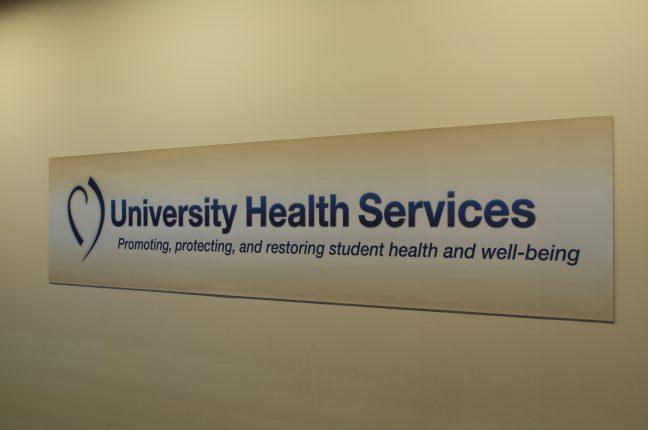University Health Services introduced a new phone-based system for accessing and completing mental health consultations in place of its previous walk-in triage model.
Unlike its predecessor, which limits students to strictly in-person, drop-in appointments, the new model will enable service seekers to schedule consultations at Mental Health Services ahead of time via phone or MyUHS, UHS co-director Angela Janis said.
Students will then be able to complete their 20-minute initial screening on their phone, often on the same day the appointment was made, Janis said. Previously, students would only be able to complete the screening at UHS right before their appointment.
UHS co-director Andrea Lawson said she hopes the new system will not only better accommodate students’ schedules, but also encourage hesitant students to seek out services.
“We recognize that asking for help often takes courage and can feel stigmatizing,” Lawson said. “We want to remove barriers for students to reach out for the help they need, and we think being able to schedule a confidential phone consultation is one way to achieve this.”
Janis also hopes the program will narrow the discrepancy between the number of at-risk students and those who are just seeking out services.
Healthy Minds Study reported that 21 percent of University of Wisconsin students screened positive for depression and 16 percent for anxiety. Yet, UHS received service requests from only about 11 percent of the campus population in 2015, Janis said.
As a result of the study, UHS hired three specialists to operate these phone-based consultations, abandoning the previous model in which about 40 to 50 staff members rotated on walk-in consultation appointments, Janis said.
Janis explained that will allow for more efficient allocation of staff resources, which will in turn help UHS prioritize treatment without taking away any of the “initial triage and access availability” in the face of increasing service needs from students.
“What we find from having that many different people doing [the old model] is you start to lose consistency,” Janis said. “We wanted to provide equitable service to all students and make sure that it is consistently applied … [to] make sure that every student gets that correct connection.”
UHS strives to expand mental health services despite financial restraints
Nonetheless, Janis acknowledged the new model will prevent the reading of facial expressions and body language, which she noted is important for ongoing care.
But, she also added the new model continues to allow specialists to obtain any information necessary for connecting patients with services initially.
UHS will be comparing utilization metrics to monitor the new model’s trends and efficiency, Lawson said.
“If there is a significant drop [in utilization of resources] or other issues, we will make changes to the system to accommodate the needs of students,” Lawson said. “That’s really been the driving factor in making these changes — how do we best get students connected to the services that meet their needs at the time they need them?”
Peer institutions with comparable populations that employ similar phone-based consultation models, such as University of Texas-Austin and The Ohio State University, have yielded “really positive results” among participating students, Janis said.
If the new model proves to be a success, Janis suggested UHS may look into expanding their web-booking options.
“Really, it’s about being thoughtful, upfront and listening to students individual concerns and match them to the service that fits for them,” Janis said.





















